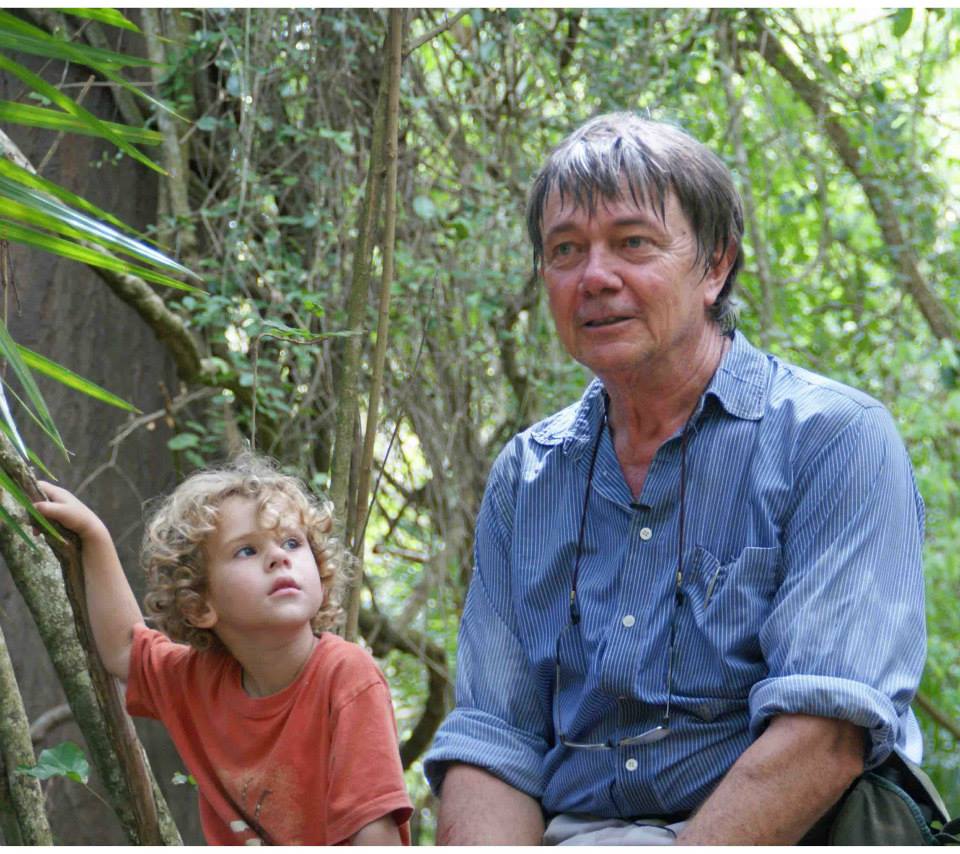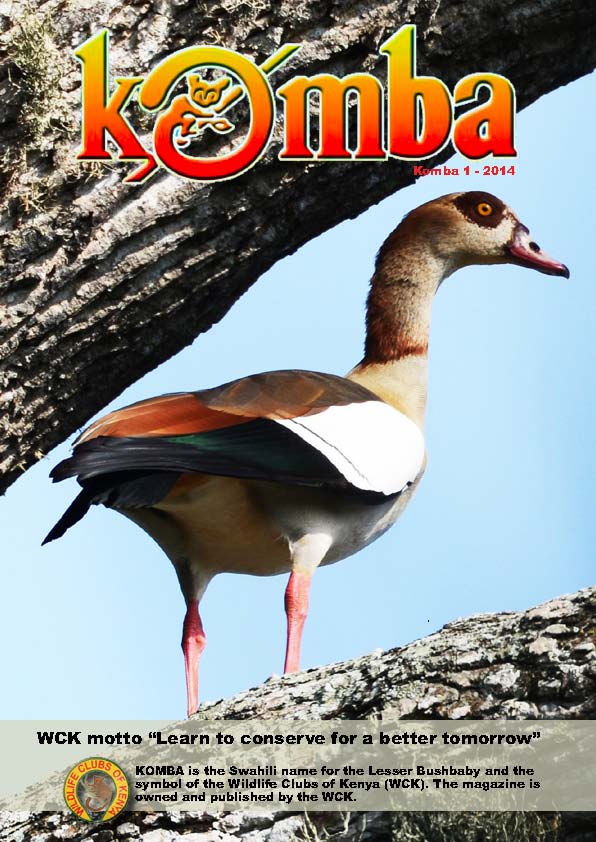News Archive
"Freshwater Fishes Guide" Review by Swara Magazine
Fish are one of the most fascinating and important components of Kenya’s biodiversity. One of the great challenges facing understanding and appreciating the diversity of fish in Kenya has been the lack of an accessible guidebook. As many of us who occasionally bother playing around fish with rods and lures can attest, often one pulls something out of the water that one doesn’t immediately recognise and this can be very frustrating.
The publication of this delightful little book fills a large gap in our knowledge and ability to identify fish in Kenya. Dr Nyingi has put together a compact publication that will prove useful to anyone interested in identifying the fish that they catch or observe in rivers, lakes and wetlands across the country.Â
Click here to download full article
KENWEB botanist awarded the Fairchild Medal

Quentin Luke, KENWEB’s tireless botanist and co-discoverer of most of the exceptional biodiversity of the Tana Delta (the colobus and mangabey, the Madagascar Pratincoles, etc.) and responsible for taking its plant species list from 300 to almost 800, many of them threatened and several of them new to science, has been awarded the equivalent of the Nobel Prize for Field Botany: the David Fairchild Medal for Plant Exploration. Given out annually by the National Tropical Botanical Garden (NTBG) of the US of A, it rewards distinguished service to humanity by exploring remote areas of the world, using innovative travel itineraries, conveyances, or techniques to discover new plant species, playing a crucial role in the ex situ cultivation of rare or endangered plant species and ensure preservation of threatened and endangered habitats and natural communities. Quentin is best known for his work on the sacred Mijikenda Forests or Kayas of the Eastern African seaboard which largely through his work in the 1990s, are now recognised by Unesco as World Heritage Cultural Landscapeshttp://whc.unesco.org/en/list/1231 Those of us fortunate enough to spend time in the field with Quentin (and who in addition have the physical stamina to keep up with him when he crashes through tangled and spiny vines, crawls over slippery branches crossing croc-infested waters or trundles knee-deep through the mud of seemingly endless marshes) know that he is not only the walking encyclopaedia of East African Plant life and the IUCN red-list authority for the region but also a great teacher, a critical thinker, a fun companion and an extremely knowledgeable naturalist for an endless series of species groups other than plants. Armed only with secateurs, a plastic bag, a petrol fuelled plant drier, a GPS, a mosquito net and some dry foodstuffs he can spend days collecting in the most inhospitable places, on condition that there is real coffee not this powdered ersatz that some Swiss companies are mass-producing to the detriment of South-East Asia’s most valuable forests. The director of the NTBG puts it in these terms: “Quentin personifies the old-fashioned, no-frills plant collector ethic. Guided by his life-long commitment to Africa, its plants and people, and naturally possessing a keen sense of exploration and discovery, Quentin is an ideal recipient for the Fairchild Medal.â€
Congratulations Quentin, well deserved!
KENWEB Joins ICCA Consortium

Â
KENWEB is proud to announce that it has been accepted as a member of the ICCA Consortium http://www.iccaconsortium.org/
The ICCA consortium is an international organisation dedicated to promoting the appropriate recognition of and support to Indigenous Peoples’ and Community Conserved Areas and Territories. We believe, like walking on water lilies for this Black Crake, that the situation in Kenya is a difficult balancing act. Indigenous communities, with the exception of the Ogiek, have not really been officially recognised, the ethnic issue has been completely politicised and communal land rights are a very hot potato anyway. Many of the potential ICCAs are being gobbled up in all sorts of setups, sometimes with the backing of the green-grabbing type of conservation NGOs who are not beyond taking a few shortcuts around the free prior and informed consent by the concerned communities. In Kenya there is also a long tradition of “conservanciesâ€, the governance of which is not always top notch, ranging from the exploitative, with virtually no benefits accruing to the community or only to a few individuals in it, and then all the way to the marvellously pure of heart but that lack means to implement crucial management interventions such as surveillance or securing their water rights. In addition, many of the world’s most famous protected areas have actually been established on non-formalised ICCAs and its dispossessed people have faced enormous difficulties in maintaining access to some of their most vital resources, including spiritual. With climate change making the fenced and state-controlled approach to biodiversity conservation increasingly irrelevant, there is recognition that networks of well-governed and appropriately supported ICCAs (with the wrong approach they can be totally wrecked in no time at all) are increasingly an avenue for the conservation of significant landscapes that integrate multiple uses. That also means the pressure is on from all sides to either convert them to single use from large-scale agriculture (irrigation, biofuels) to fortress conservation type areas. The money that some unscrupulous characters smell in REDD+ also brings out some of the worst behaviour in human society. It will always be hard to empower the powerless. So we need to tread carefully and ethically






 Click image to download strategy
Click image to download strategy